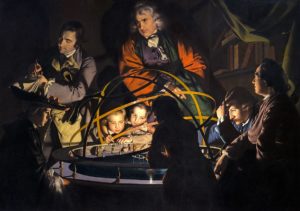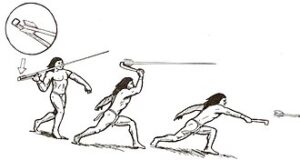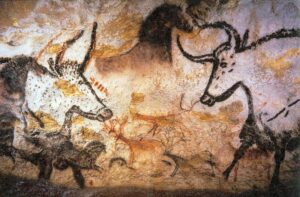 Paul Rosenberg - Freeman**Q**s Perspective
Paul Rosenberg - Freeman**Q**s Perspective
IPFS
Earned Knowledge, L9, P1
Written by Paul Rosenberg Subject: Education: Personal Growth The Blessings of Technology
The Blessings of Technology
A fundamental part of "how people lived" is the technology they created and used. We've been covering this in our previous lessons, but this lesson will go into it further.
One of the most important things to remember about technology is that it improves human life far more than rulership ever has or ever could. We see this very clearly in the fact that technology is almost never forced upon us: It's appeal is so clear that we willingly spend our time and money to get it.
Rulership, on the other hand, is forced upon us: Like it on not, we have to do what the ruler says. The central statement of rulership, after all, is, "These are the rules, and whoever doesn't keep them will be punished." Every form of rulership has a reason why their rules are of ultimate importance and must be kept, but none of them allow disagreement.
There was an old joke that highlighted the difference between technology and rulership:
"Who do you miss more when he goes on vacation, the secretary of state or your garbage man?"
The answer, obviously, is the garbage man; his work affects you immediately and directly. The secretary of state (a political official) does nothing that directly improves your life.
Technologies, then… tools, machines and so on… are things that we freely choose, because they make a direct and positive difference in our daily lives. For example, rather than washing our clothes by hand, down at the stream (as people had to do for most of human history), we now have machines that do it for us, with almost no physical labor, and at any hour of the day or night.
It's also true that technology almost never goes away. Rulerships come and go (rising and falling, one after another), but technology doesn't cycle: it adds layer upon layer; it accretes. Useful technologies are almost always preserved through time.
And so technology has been far more important to our species than any form of rulership.
The Blessings of Technology
Technology began farther back in our history than we can see. As far back as we can identify humans, we see them using technologies: We see that they were using weapons to protect themselves from dangerous animals and to hunt animals for food: They had spears, javelins, bows and arrows, special spear throwers and a variety of other weapons.
Here's the spear-throwing tool that we've found all over the world; it's typically called an atlatl (at-LAT-ul), and allowed people to throw spears much harder and farther that they could by hand, without losing accuracy. With them an average man could throw a spear 90 miles per hour or more.

We also used fire for cooking and heating as far back as we can see. Nets for fishing as well, and harpoons. We built houses with wood, rock, earth, skins and other materials. We built boats as well, and sailed considerable distances. We had clothing of many types.
We had all of these well before the last ice age, which ran from roughly 110,000 BC to 10,000 BC. Even then we were clever, inventive people… and people who shared things profligately. We were, that is to say, massively cooperative beings. We also retained knowledge very well.
During the ice age, as best can be seen, we began making ropes, ceramics, sewing needles and even glue.
But there is more to humans than just exterior things, like our needs for safety, food and so on. We also have interior lives, and our technology has been applied to those as well. We developed music and other forms of art for just that reason: What fire and fishing did for us externally, music and art did for us internally.
We've had musical instruments for at least 45,000 years; we know, because we've found flutes that old. And it's all but certain than singing goes back much further; drums (percussion) as well. And we have not just rough art, but excellent paintings and drawings, going back into the ice age. This painting, for example, was created at 15,000 BC or so:

It seems that agriculture – carefully growing large amounts of food – was happening during the ice age among the first people we covered in Lesson One. But because the place where they seem to have lived has been underwater for a very long time, we can't be certain of that. But very certainly the people of Anatolia at 7,000 BC were intelligently growing very many crops and carefully raising many types of farm animals.
It was also at roughly this time (and again, perhaps earlier) that people learned to irrigate their fields: to bring in water on purpose. This was done with canals, gates and small trenches, but it was done very widely and seemingly well. It allowed people, especially in places that flooded or were rather dry, to produce more and better crops.
What's also interesting with irrigation is that it required careful and consistent maintenance. Canals had to be checked and dredged, gates had to be checked and repaired, and so on. That required not only dedicated workers, but trained and reliable workers; the personal character of the person in charge of the maintenance mattered a very great deal. This has been a critical factor for most kinds of technology through the years, and one that isn't mentioned nearly enough. Without intelligent and conscientious maintenance, nearly all technologies fail quickly.
**
Paul Rosenberg
freemansperspective.com























